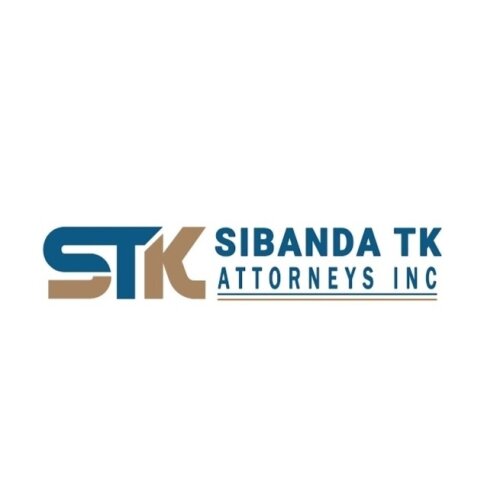Best Foreclosure Lawyers in Kwamhlanga
Share your needs with us, get contacted by law firms.
Free. Takes 2 min.
Free Guide to Hiring a Real Estate Lawyer
List of the best lawyers in Kwamhlanga, South Africa
About Foreclosure Law in Kwamhlanga, South Africa
Foreclosure is a legal process that allows a lender, typically a bank, to repossess a property when a borrower falls behind on mortgage payments. In Kwamhlanga, South Africa, foreclosure procedures are governed by national legislation but are impacted by local practices and court jurisdictions. The process involves several legal steps, offering homeowners certain protections and opportunities to defend against or delay foreclosure. Understanding your rights and obligations, as well as the timeline of foreclosure, is essential if you find yourself facing the risk of losing your home in Kwamhlanga.
Why You May Need a Lawyer
Foreclosure law can be both complex and stressful. There are many situations where getting legal advice is crucial, such as:
- Falling behind on mortgage payments and receiving notifications from your bank or a legal notice.
- Uncertainty about your rights and obligations regarding home ownership and debt repayment.
- Receiving a summons from the court or facing eviction procedures.
- Wishing to negotiate with your lender or explore alternative solutions, such as debt restructuring or payment plans.
- Disputing the amount owed or identifying procedural errors by the lender.
A lawyer can help you navigate the complicated legal processes, protect your interests, communicate with creditors, and potentially find solutions that allow you to retain your property or reduce your losses.
Local Laws Overview
Foreclosure in Kwamhlanga, as in the rest of South Africa, generally follows the procedures set out in the National Credit Act (NCA) and High Court Rules. Here are some key aspects of local foreclosure laws:
- Legal Process: Lenders must follow strict court procedures before repossessing a property. This includes giving proper notice and an opportunity for the borrower to respond.
- Section 129 Notice: Before instituting foreclosure proceedings, the lender must serve a Section 129 notice advising the borrower of their arrears and suggesting remedies.
- Court Involvement: Foreclosure typically requires a court order. This gives the homeowner a chance to present their case and potentially raise defences.
- Right to Reinstate: Borrowers may be able to reinstate the bond by paying arrears and legal fees, even after court action has started.
- Eviction Procedures: Separate court proceedings are required for eviction, meaning ownership transfer and eviction are not automatic.
- Sale in Execution: If the court grants foreclosure, the property will generally be sold at public auction, with any surplus funds (after debt and costs) returned to the former owner.
Specific local practices in the regional division or Magistrate's Court for Kwamhlanga may influence timelines and logistical steps.
Frequently Asked Questions
What is a Section 129 notice?
A Section 129 notice is a legal document from the lender notifying you about your default and offering an opportunity to rectify the situation before court action is started.
How long do I have after receiving a foreclosure notice?
Time frames can vary, but you generally have at least 10 days after receiving a Section 129 notice to make arrangements or catch up on arrears before court action begins.
Can the bank take my house without going to court?
No, in South Africa, a lender must obtain a court order before they can repossess your home and sell it to recover debts.
Do I have to move out immediately after foreclosure is granted?
No. Even after a foreclosure order, you cannot be evicted without a separate eviction order from the court. This gives you time to respond or make alternative arrangements.
Is it possible to stop foreclosure once it has started?
Yes, it is sometimes possible to stop foreclosure by negotiating with the lender, paying off arrears and legal fees, or presenting a valid defense in court.
What happens to the money from the sale of my house?
The proceeds are used to pay off the outstanding mortgage and associated legal costs. Any surplus funds must be returned to you, the homeowner.
Will foreclosure affect my credit record?
Yes, foreclosure and defaulting on your bond are recorded on your credit profile, making it more difficult to access credit in the future.
Can I negotiate with my bank to avoid foreclosure?
Yes, many lenders are open to negotiating payment arrangements, restructuring your loan, or agreeing to a sale in lieu of foreclosure.
Do I have to be present in court for the foreclosure case?
It is advisable to attend court hearings or have a legal representative present to defend your interests and potentially raise valid defenses or negotiate settlements.
Where can I get free legal help for foreclosure in Kwamhlanga?
There are several resources, including Legal Aid South Africa and local advice offices, that may provide free or low-cost assistance if you cannot afford a private attorney.
Additional Resources
Individuals facing foreclosure in Kwamhlanga can seek assistance or information from the following:
- Legal Aid South Africa - Offers free legal services to those who qualify based on income.
- National Credit Regulator (NCR) - Provides information about your rights as a consumer of credit and can assist with complaints.
- The Magistrate's Court in Kwamhlanga - Handles local foreclosure and eviction cases and can provide guidance on court procedures.
- Local Community Advice Offices - Non-profit organizations that offer legal guidance and support for vulnerable individuals.
- South African Human Rights Commission - Can assist if there are concerns about discrimination or unfair treatment during the process.
Next Steps
If you are facing the possibility of foreclosure in Kwamhlanga, South Africa, consider the following steps:
- Do not ignore legal notices or communications from your lender. Respond promptly to all correspondence.
- Gather all relevant documents, including your loan agreement, any notices received, and your payment records.
- Contact a qualified attorney or visit Legal Aid South Africa to understand your options and get representation if needed.
- Explore possible solutions by engaging with your lender, such as restructuring the loan, selling the property privately, or applying for debt counseling.
- Attend any court hearings and make your case or ensure your legal representative does so on your behalf.
- Seek assistance from local advice offices or support organizations if you have difficulty navigating the process or cannot afford private legal services.
Foreclosure is a difficult and complex process, but early action and sound legal advice can help protect your rights and minimize negative outcomes.
Lawzana helps you find the best lawyers and law firms in Kwamhlanga through a curated and pre-screened list of qualified legal professionals. Our platform offers rankings and detailed profiles of attorneys and law firms, allowing you to compare based on practice areas, including Foreclosure, experience, and client feedback.
Each profile includes a description of the firm's areas of practice, client reviews, team members and partners, year of establishment, spoken languages, office locations, contact information, social media presence, and any published articles or resources. Most firms on our platform speak English and are experienced in both local and international legal matters.
Get a quote from top-rated law firms in Kwamhlanga, South Africa — quickly, securely, and without unnecessary hassle.
Disclaimer:
The information provided on this page is for general informational purposes only and does not constitute legal advice. While we strive to ensure the accuracy and relevance of the content, legal information may change over time, and interpretations of the law can vary. You should always consult with a qualified legal professional for advice specific to your situation.
We disclaim all liability for actions taken or not taken based on the content of this page. If you believe any information is incorrect or outdated, please contact us, and we will review and update it where appropriate.









